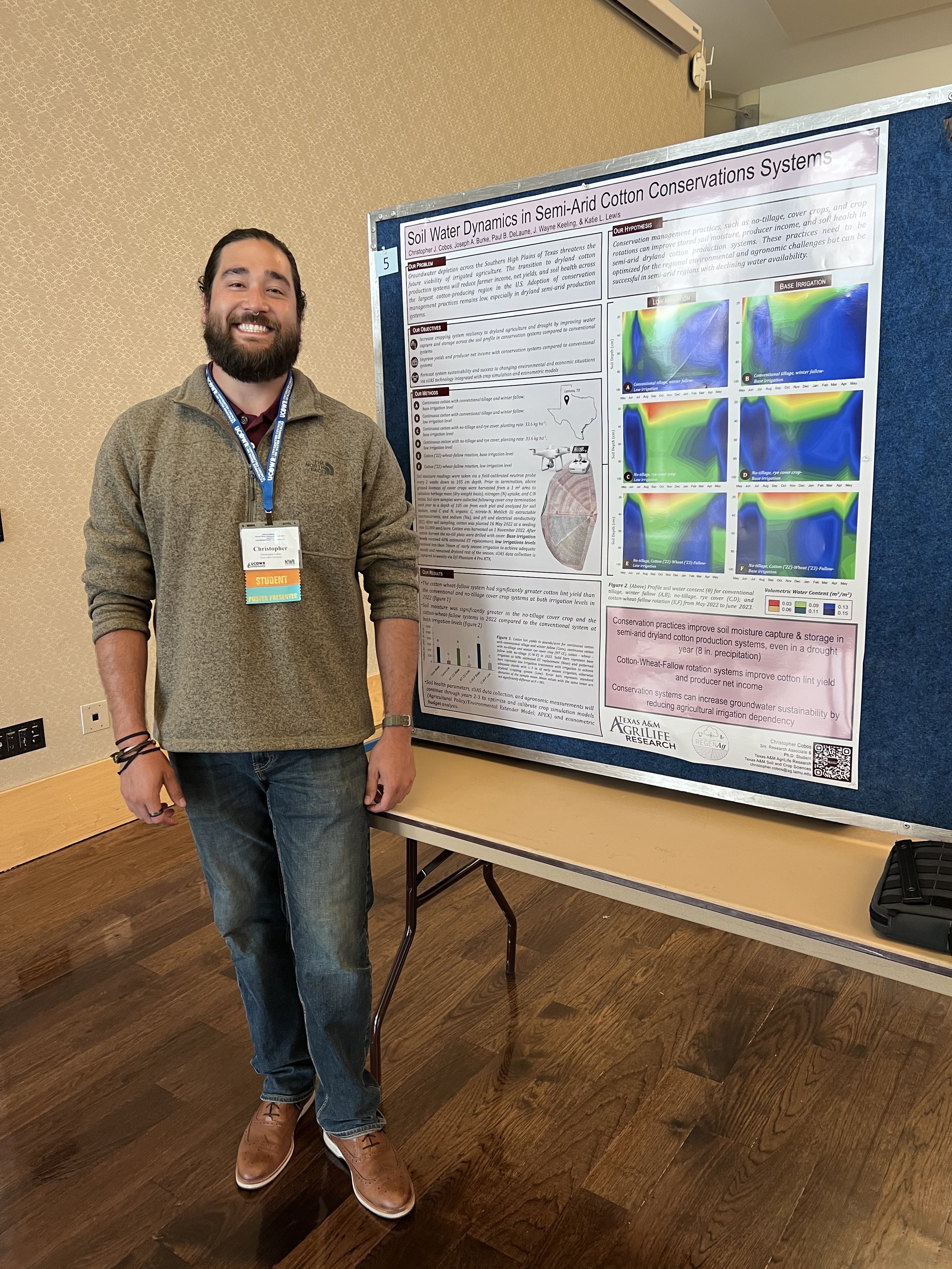February 2025 Spotlight: Chris Cobos
Meet Chris: A Passion for Soil & Water Conservation
Chris graduated from West Texas A&M University in 2015 with his B.S. in Wildlife Biology. His undergraduate research focused on the antimicrobial properties of plant secondary metabolites. After graduation, Chris worked at the Texas Tech Health Sciences Center School of Pharmacy in Amarillo, TX researching the role of human endothelial cells and cytokines on tumor angiogenesis and growth through the TTUHSC Biomedical Research Internship. From there, Chris started his M.S. in Plant and Soil Sciences at Texas Tech University in Lubbock, TX. He graduated from TTU in 2018 after successfully defending his thesis, “The developmental biology and biochemistry of peanut (Arachis hypogaea) testa and its role in Aspergillus resistance”. In 2019, Chris worked for the Department of Chemistry and Biochemistry at Texas Tech University working on gas chromatography and mass spectroscopy of various plant and animal sterols.
In 2021, Chris started his Ph.D. in Soil Science at Texas A&M University under Dr. Katie Lewis. Currently, his research focuses on optimizing soil water conservation and soil health properties of semi-arid regenerative cotton cropping systems. “My research focuses on soil water dynamics in semi-arid agricultural conservation systems, specifically in dryland or deficit-irrigated production systems. The project goal is to (1) gain a better understanding of water availability over time with different conservation management practices in cotton production across the High Plains of Texas and (2) evaluate the sustainability of these practices under projected climate changes to forecast community socioeconomic vitality in the future. Understanding and continuing research on dryland production systems across the High Plains of Texas remains one of the most pivotal issues in regional agricultural production. Research outcomes can be translated to semi-arid environments globally to increase agricultural intensification with increasingly limited water resources. This is paramount to meet the agricultural demands of a growing global population in the face of an increasingly harsh climate and environment.”
“Exposure to the nuances and issues that agricultural producers face across the semi-arid High Plains of Texas has fostered a curiosity and passion for dryland and water conservation research that I plan to pursue in my career. Incorporating a systems-approach to conservation agriculture research is essential in determining applicable solutions to water and cropping systems sustainability. I plan to continue in this field with the mindset of coupling soil and agronomic field research with ecological, climate, and econometric models to determine the current status of sustainability and success of agricultural systems while forecasting that success into the future under varying climate and economic conditions. Field and laboratory exploration are as critical to the success of research as communicating and helping provide solutions to the producers who will ultimately be dependent on their implementation. With this in mind, I would love opportunities to not only explore my research interests but communicate data in Extension or teaching roles as well, continuing my progress in becoming a leader for agricultural research and sustainability in dryland agroecosystems and water conservation.”


















